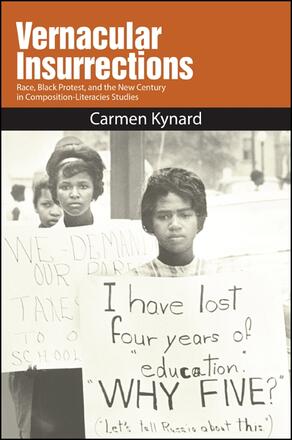
Vernacular Insurrections
Race, Black Protest, and the New Century in Composition-Literacies Studies
Alternative formats available from:
Relates Black Freedom Movements to literacy education.
Description
Winner of the 2015 James M. Britton Award presented by Conference on English Education a constituent organization within the National Council of Teachers of English
Carmen Kynard locates literacy in the twenty-first century at the onset of new thematic and disciplinary imperatives brought into effect by Black Freedom Movements. Kynard argues that we must begin to see how a series of vernacular insurrections—protests and new ideologies developed in relation to the work of Black Freedom Movements—have shaped our imaginations, practices, and research of how literacy works in our lives and schools.
Utilizing many styles and registers, the book borrows from educational history, critical race theory, first-year writing studies, Africana studies, African American cultural theory, cultural materialism, narrative inquiry, and basic writing scholarship. Connections between social justice, language rights, and new literacies are uncovered from the vantage point of a multiracial, multiethnic Civil Rights Movement.
Carmen Kynard is Associate Professor of English at St. John's University.
Reviews
"With this groundbreaking book, Carmen Kynard claims her place among a growing group of scholars who are challenging traditional models for teaching writing and for understanding the role of linguistic diversity in effective communication. She skillfully draws on her own classroom experiences to demonstrate the liberatory, meaning-making potential of writing generated in an environment of trust and respect." — Shirley Wilson Logan, author of Liberating Language: Sites of Rhetorical Education in Nineteenth-Century Black America